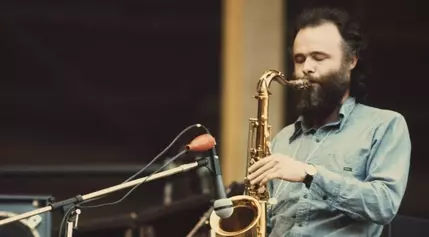Garth Hudson, the enigmatic organ virtuoso and final surviving member of The Band, passed away at 87 near Woodstock. His death marks the end of an era but leaves behind a legacy that transcends time. Hudson was the quiet force, the unsung hero who shaped the soul of The Band with his unparalleled musicianship and frontier spirit.A Timeless Maestro Whose Music Will Forever Resonate
The Genesis of a Musical Legend
Garth Hudson emerged from a humble farming background in Ontario, where he discovered his love for music at an early age. By five, he was already exploring the piano, influenced by the old instruments around his home. His father’s fondness for country music on the radio sparked a lifelong passion for diverse genres. Classically trained, Hudson could have pursued a career in symphonies or jazz, yet fate led him to rock 'n' roll. He joined Ronnie Hawkins' backing band, the Hawks, where his unique blend of classical training and country roots set him apart.Hudson's role in the Hawks was pivotal. He not only played multiple instruments but also mentored his younger bandmates, teaching them music theory and harmony. His presence brought a maturity and depth that shaped the band’s sound. Despite being years older, Hudson’s contributions were indispensable, making him more than just a musician—he became a guiding force.
The Birth of a Brotherhood
When the Hawks evolved into The Band, Hudson’s influence grew even more profound. The group’s communal living in upstate New York, particularly at Big Pink, fostered a brotherhood that defied conventional rock stereotypes. They lived together, jammed together, and created some of the most groundbreaking music of the era. The Band’s debut album, "Music from Big Pink," was a testament to their collective genius, blending folk, rock, and Americana in a way that felt both timeless and revolutionary.Hudson’s playing style was nothing short of transformative. His ability to switch between organ, piano, accordion, and horns added layers of complexity to their songs. One of the most iconic moments came during "The Last Waltz," where his soprano sax solo in “It Makes No Difference” encapsulated the emotional depth of the band’s entire career. It was a moment of raw, unshowy power that left an indelible mark on rock history.
Defying Expectations
Hudson’s appearance and demeanor were as unconventional as his music. In an era when youth culture dominated, Hudson chose to embrace an older, wiser image. His string ties, long beard, and rustic attire made him stand out, symbolizing a rejection of the divide between generations. This deliberate choice underscored The Band’s mission to bridge different worlds through music.Their Rolling Stone cover photo captured this ethos perfectly. Five men gazing into the snowy woods, backs turned to the camera, embodying a sense of unity and mystery. Hudson’s presence in this image was crucial—it represented the heart and soul of The Band. Even Elton John paid homage to him, adopting a similar look for his album cover "Tumbleweed Connection."
Innovating Behind the Scenes
Beyond his performances, Hudson was a mastermind behind the scenes. He set up a makeshift recording studio in the basement of Big Pink, capturing the legendary Basement Tapes. Using a two-track tape recorder and a mixer, he recorded sessions that would later become bootlegs and official releases. The raw, down-home sound of these recordings has endured, influencing countless artists and cementing The Band’s place in music history.Hudson’s innovative spirit extended to his gear. He constantly experimented with new sounds and techniques, always pushing the boundaries of what was possible. His eight-minute intro to “Chest Fever,” dubbed “The Genetic Method,” was a Bach-inspired masterpiece that showcased his musical versatility. Critics praised it as a world unto itself, filled with humor and complexity.
A Legacy That Transcends Time
Garth Hudson’s impact on music extends far beyond The Band. He collaborated with younger artists like Wilco, Neko Case, and Mercury Rev, bringing his signature touch to their work. Even in the MTV era, he appeared on “The Walls Came Down,” playing synth without ever seeking the spotlight. His humility and dedication to the craft made him a beloved figure in the industry.In his later years, Hudson continued to perform and record, leaving behind a rich discography. His final performance on the Grateful Dead tribute album “Day of the Dead” was a poignant farewell, transforming “Brokedown Palace” into a haunting funeral dirge. Hudson’s organ became the spirit of the song, leading listeners through a final journey.The death of Garth Hudson signifies the end of The Band’s brotherhood, but their legacy lives on. The music they created together remains a testament to their friendship and artistic vision. Hudson’s contributions will forever be remembered as a cornerstone of American music, embodying the spirit of community and innovation that defined his life and career.

